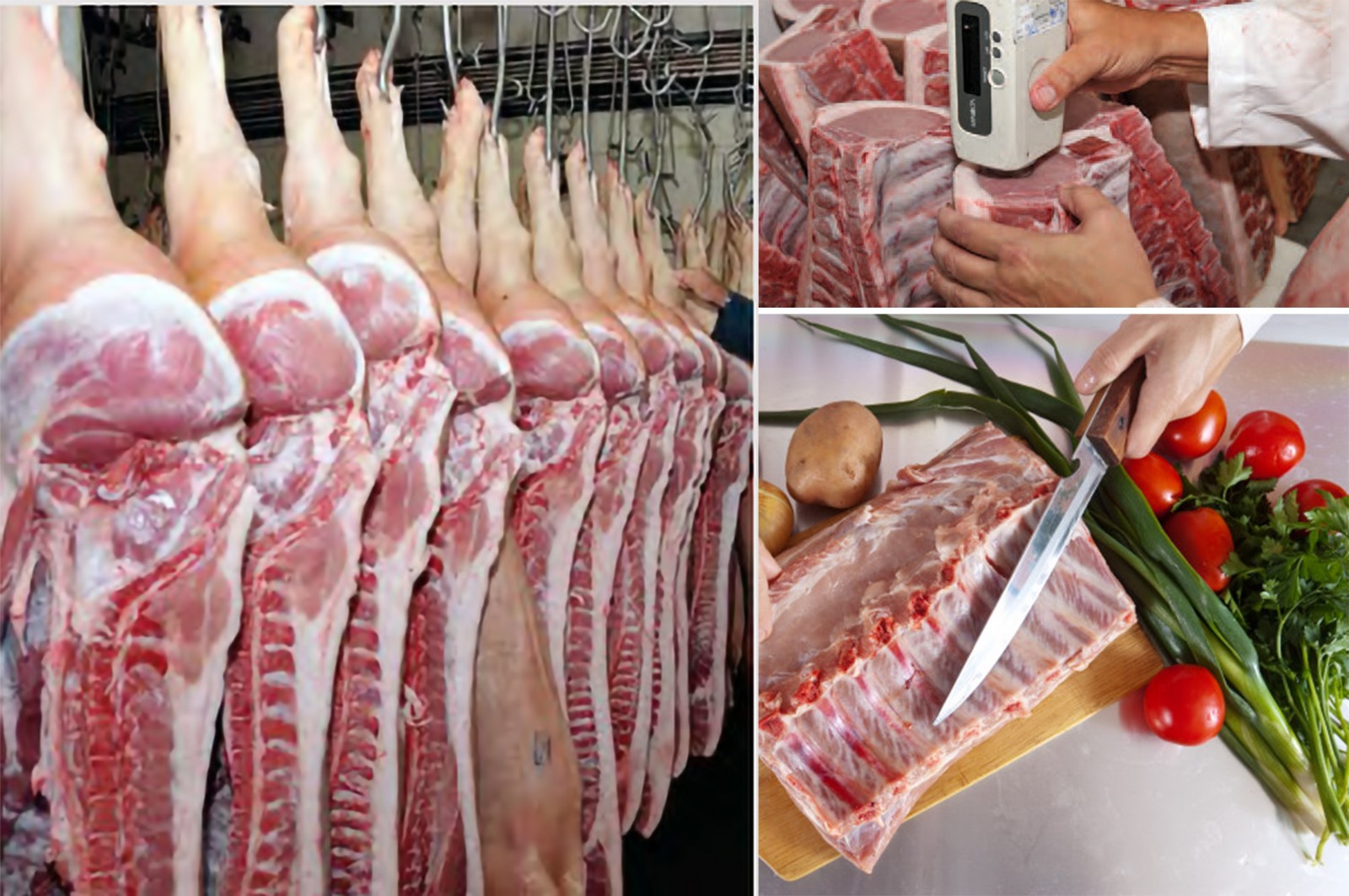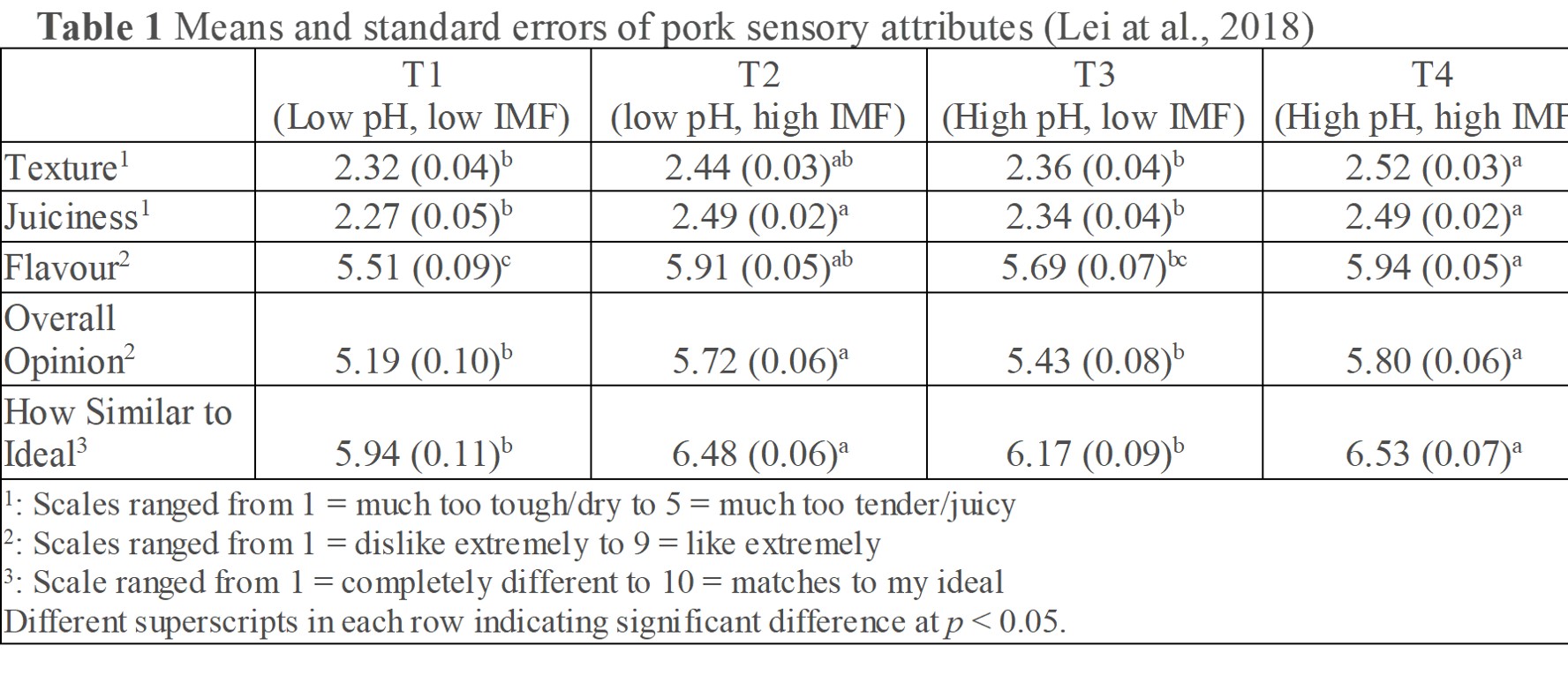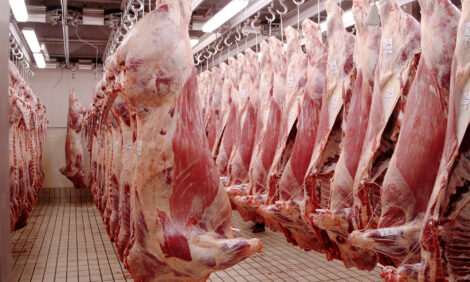



Genesus Global Technical Report: genetic effort to improve pork sensory traits
Pork quality is an important factor influencing consumers purchasing decisions.
© Genesus
Sensory traits are based on panelists sensory evaluation which is a scientific method to evaluate pork products using the human senses particularly smell and taste (Civille and Carr, 2015). Many sensory panels are composed of consumers, which furthers our understanding of consumer desires and satisfaction with pork. However, due to the high cost of obtaining such measurements, it is very difficult to collect these phenotypes on large numbers of animals, making genetic improvement of sensory traits more difficult.
Even given these challenges, Genesus Inc. continues to develop strategies to genetically improve sensory traits to better satisfy our consumers desires. We have collected sensory traits including texture, juiciness, flavour, overall opinion and similar to ideal, and many other detailed meat quality measurements for nearly 1000 Genesus commercial pigs in a special project. Combining this information with data from the Genesus weekly carcass and meat quality programme, we were able to understand the genetic control of sensory traits and their genetic associations with other traits of economic importance.
Our results showed that the heritability (genetic control) was generally low for all these sensory traits (0.02 – 0.13). However, all sensory traits had favourable genetic correlations with ultimate pH (0.16 – 0.39) and intramuscular fat (IMF) (0.37 – 0.54). An earlier study also reported that IMF was positively associated with tenderness and marbling (~ 0.32) (De Vol et al., 1988), which is related to a better eating experience.
Meat pH and IMF are two main factors influencing pork sensory traits. Our previous study showed that pork chops with higher pH and higher IMF (T4 in Table 1) had the highest sensory taste scores. Further, IMF appears to contribute more to the sensory acceptability considering the significant difference (T1 vs T2, T3 vs T4). Recent studies also showed that IMF significantly affects pork sensory attributes positively impacting consumer satisfaction at the points of purchase and consumption (Ngapo et al., 2018; Noidad et al., 2019).

© Genesus
Genesus has been conducting a weekly carcase and pork quality programme since 1998. The combination of this data plus genomic information is an important contributor to our genetic improvement programme.
Marbling and pH, key pork quality traits are included in our genetic improvement programme and directly benefits all of our customers by providing a consistent and pleasurable pork eating experience.
| References | ||||
|---|---|---|---|---|
| Civille & Carr | ||||
| (2015) | Sensory Evaluation Techniques. CRC Press | ISBN 9781482216905 | ||
| De Vol et al. | ||||
| (1988) | . J Anim Sci. | 66 (2): 385-395 | ||
| Lei at al. | ||||
| (2018) | . Advances in Pork Production | 29, Abstract #15. | ||
| Ngapo et al. | ||||
| (2018) | . Meat Sci. | 135, 27-35 | ||
| Noidad et al | ||||
| (2019) | . Asian Austra. J. Anim. Sci. | 27:1923-1932 |







